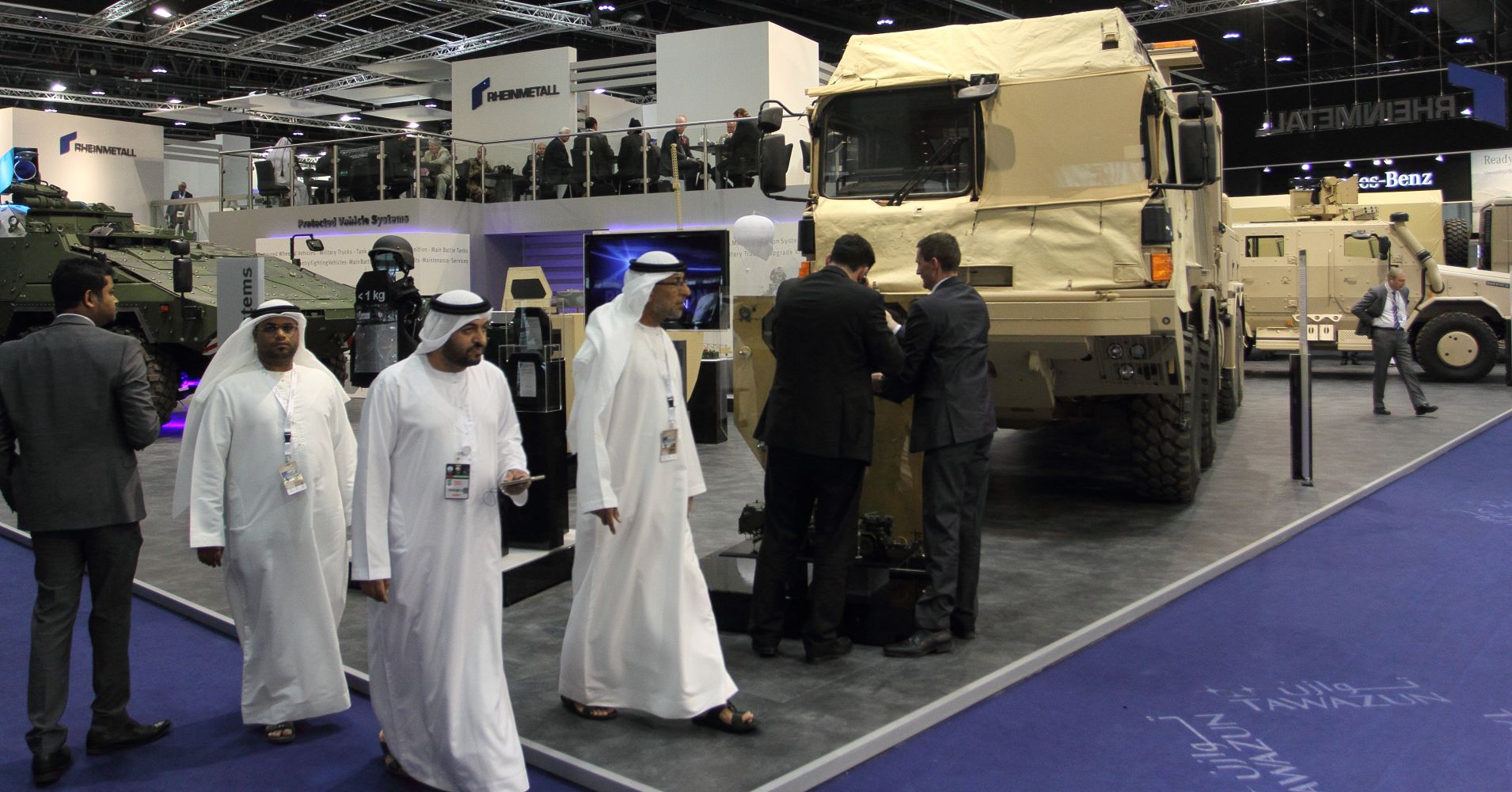
The United Arab Emirates announced about $1.35 billion in defense deals with local and international companies on the opening day of IDEX 2019, the International Defence Exhibition and Conference, in Abu Dhabi on Sunday.
Of the 33 deals announced Sunday, 18 were domestic and 15 were with foreign firms, the latter accounting for just under $1.1 billion of the total, an IDEX spokesperson said during a news conference.
American companies took the greatest share of foreign sales, at about $490 million. Led by Raytheon, Lockheed Martin and Hesco, the deals will provide missiles, new radar systems capabilities and defensive shelters for the UAE military, respectively. Others notching sales to the country included France’s Thales, Australian firm EOS Defense and Germany’s Rheinmetall Electronics.
The deals with 18 domestic firms highlight the small Gulf country’s investment in developing its own defense manufacturing industry as part of a drive to diversify its economy away from oil.
The purchases come at a time when defense spending is soaring in the Middle East. A report from IHS Jane’s published Friday revealed an increase in arms expenditures in the Gulf from $82.3 billion in 2013 to $103 billion in 2019. And it’s showing no signs of stopping — IHS forecast spending will hit $110.8 billion in 2023.
While the drop in oil prices from 2014 to 2016 delayed many procurement projects, “defense was generally protected from the worst of the spending cuts due to regional security concerns and budgets are now growing again,” Charles Forrester, senior defense industry analyst IHS Jane’s, wrote in the report.
The heavy spending is no surprise given the ramp-up in political tensions over the last few years between regional rivals Saudi Arabia — along with its Gulf allies the UAE and Bahrain, among others — and Iran. The Saudi-led blockade against Qatar has also spiked arms procurement, as the latter’s resulting re-armament made it the world’s eighth-largest weapons importer in 2018, IHS said.
The Middle East is the world’s top arms-importing region, according to the analytics firm, accounting for nearly 20 percent of the global defense market. American companies make up 50 percent of the exports that go there.
Ian Bremmer, founder of political risk consultancy Eurasia Group, says it’s nothing short of a regional arms race.
“I think there is an arms race happening in the Middle East,” Bremmer told CNBC at the Munich Security Conference on Sunday. “The Saudis of course are spending the most on their defense, but the UAE is ramping up as well, the Iranians are ramping up.”
With a slowdown in growth forecast for the entire Middle East and North Africa region, thanks in part to lower oil prices, that spending will come under pressure.
“But still, the defense contractors should be happy in this environment, that’s true all over the world,” Bremmer said. “And, in an environment where there are so many big challenges, it’s a little sad to see just how many countries are working to ramp up their defense spend.”
The UAE is a top regional ally to the U.S. in the fight against terrorist organizations, and has been credited by Pentagon officials for its role in combating Al Qaeda in Yemen. More recently, however, it has come under increased criticism for its role in Yemen’s civil war, where a Saudi and UAE-led offensive coalition has been described by the UN as being responsible for most of the at least 10,000 civilian deaths in the country since 2015.

